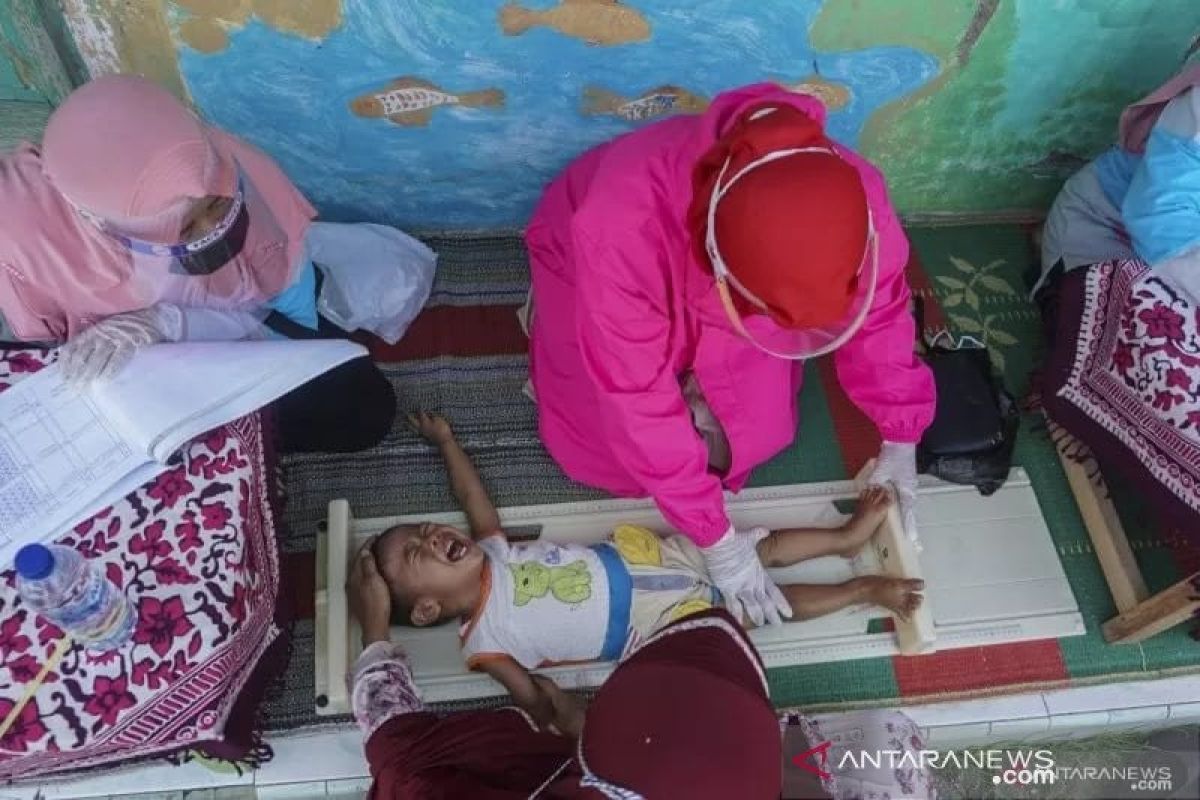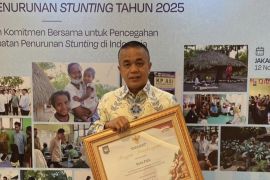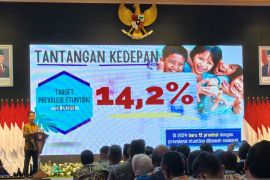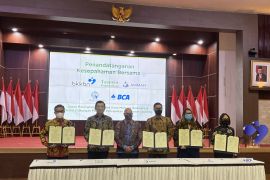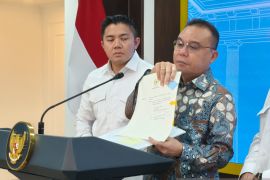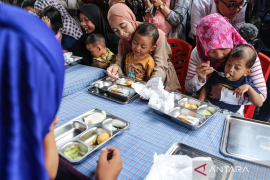Coordinating Minister for Human Development and Cultural Affairs Muhadjir Effendy stated in Jakarta on Monday that Indonesia should work hard to attain its national prevalence level of 14 percent in 2024.
To this end, Indonesia should be able to reduce annually at least 2.7 percent of the number of children, with stunted growth, he remarked, adding that President Jokowi had formulated several requisite measures to achieve the targeted stunting rate.
One of the necessary measures to be adopted by the BKKBN is optimizing the handling of Indonesian children, with stunted growth, amid the fact that the funds for responding to the problem of stunting existed in 20 ministries and government agencies.
President Jokowi also instructed regional administrations to map out stunting cases in their respecting areas since the central and regional governments use this mapping stage to prepare detailed and effective response measures, he revealed.
According to the World Health Organization (WHO), children, with stunted growth, are those whose "height-for-age is more than two standard deviations below the WHO Child Growth Standards median."
ANTARA noted that during the course of the previous years, Indonesia had striven to reduce cases of stunting in different parts of the country since this endeavor is closely related to the implementation of the Sustainable Development Goals (SDGs).
Sigi District in Central Sulawesi, for instance, is one of the regions that is striving to deal with children with stunted growth.
In 2019, the district had 1,199 cases of stunting in children up to 23 months of age and 3,580 stunting cases in children up to 59 months of age.
In dealing with cases of stunting, the Sigi district government has focused its preventive and mitigation efforts to eradicate childhood stunting in the 10 villages of Lemosiranindi, Pelempea, Morui, Marena, Siwongi, Rantewulu, Waturalele, Langko, Sibalaya Selatan, and Sibalaya Barat.
To handle cases of stunting, the district government has encouraged community members to participate and work towards improving the quality of local food crops.
President Jokowi has also vowed to focus on improving the quality of Indonesia's human resources amid fierce competition among nations in this digital era.
The head of state believes that the power of improved quality of human resources will enable Indonesia to actualize its vision to become a developed nation.
However, President Jokowi's noble goal is challenging to achieve since Indonesia is still struggling to save children, with stunted growth, coupled with the quality of its human resources that varies.
Related news: Poverty still high in Indonesia: Ma'ruf Amin
Related news: Ma'ruf Amin chairs meeting on stunting, poverty eradication efforts
EDITED BY INE
Translator: Indra AP, Rahmad Nasution
Editor: Fardah Assegaf
Copyright © ANTARA 2021
